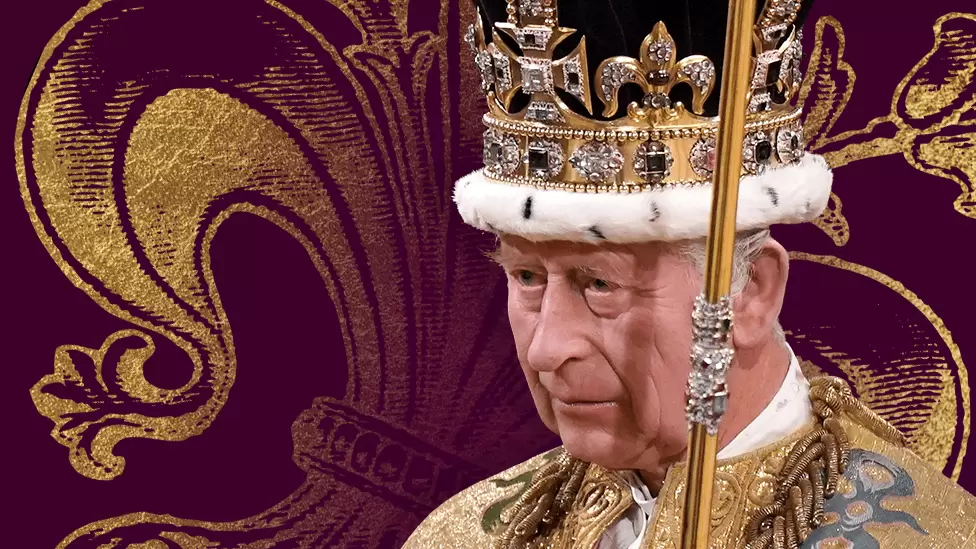
King Charles III and Queen Camilla have been crowned at Westminster Abbey, marking the symbolic beginning of a new royal era in Britain, and an extraordinary moment for a man who has spent more than seven decades in waiting.
In an elaborate and archaic ritual not seen in Britain since 1953, the king was anointed with holy oil and swore the oath of kings, before the archbishop of Canterbury, Justin Welby, placed St Edward’s crown on his head, to a cry of “God save the king”.
In front of 2,300 guests including more than 100 heads of state, the king also vowed to maintain the Protestant religion in the UK, and to preserve the rights of the Church of England, as set out in an act of parliament.
Tens of thousands of people crammed into the Mall and along a procession route from Buckingham Palace to the abbey, many camping overnight to secure a good view of the parade. It involved 4,000 armed forces personnel and 19 military bands, the most at any state occasion since the coronation of Queen Elizabeth II.
However, there were accusations of police heavy-handedness after a number of anti-royalist protesters, including the head of the UK’s leading anti-monarchy campaign group, Republic, were arrested before the beginning of the procession. Graham Smith had been collecting drinks and placards for demonstrators at the main site of the protest when he was detained by police on the Strand at about 7.30am.
Up to 2,000 people gathered in Trafalgar Square beneath a statue of Charles I, who was executed in 1649, as they chanted and held yellow placards reading “not my king”. One sign read: “Don’t you think this is a bit silly?”
Peter Tatchell, the human rights campaigner, tweeted a video showing a large barrier erected in front of the protesters to shield them from the royal couple during the procession. “This is not a free country when we do not have the right to freely protest,” he said.
In his oath, the king promised to govern the UK and the 15 Commonwealth countries where he is also head of state according to the law, and to “cause law and justice, in mercy, to be executed”.
But in an acknowledgment the palace and Church of England had misjudged the public mood, there was a last-minute change to the wording of the controversial homage of the people, which had been included for the first time in the ceremony, but which the king’s friend Jonathan Dimbleby said he would find “abhorrent”.
Rather than calling on “all persons of goodwill” in the abbey and at home watching on television to swear to “pay true homage … to their undoubted king”, Welby changed the wording to stress it was a voluntary and personal act.
“I now invite those who wish to offer their support to do so, with a moment of private reflection, by joining in saying ‘God save King Charles’ at the end or, for those with the words before them, to recite them in full,” he said.
There was a small moment of hesitancy as Welby placed the crown on the king’s head, the archbishop checking the crown, which weighs 2.25kg (5lb), was securely placed before letting go.
The Prince of Wales bowed and kissed his father after paying the “homage of royal blood”, in which he declared himself “your liege man of life and limb”. “Thank you, William,” the king appeared to say.
Human rights advocate Dele Farotimi has been released from the Ekiti State correctional facility after…
A Chief Magistrate in Ibadan, Olabisi Ogunkanmi, has ordered the remand of Prophetess Naomi Silekunola, the…
Popular Nollywood actress, Nkechi Blessing has finally got engaged to her younger lover, Xxssive. This…
Al Nassr captain, Cristiano Ronaldo, has jokingly reacted to a Lionel Messi taunt as he…
Popular Nollywood actress, Regina Daniels who is still enjoying her trip to the United States,…
Jay-Z has no plans to show loyalty to longtime friend Sean 'Diddy' Combs amid the…